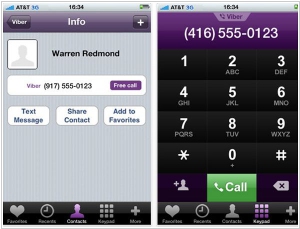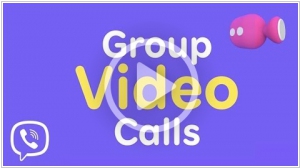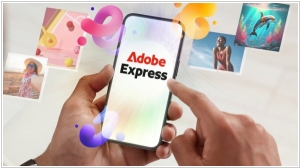Line vs Viber
May 18, 2023 | Author: Adam Levine
Line and Viber are both popular messaging and calling apps that offer various features for communication. Line is a messaging platform that originated in Asia and has gained widespread popularity worldwide. It offers features like text messaging, voice and video calls, stickers, and a timeline feature for sharing updates. Line also provides additional services such as games, digital payments, and shopping integration. On the other hand, Viber is a communication app known for its strong focus on voice and video calling. It offers high-quality audio and video calls, as well as features like text messaging, stickers, and group chats. Viber also supports end-to-end encryption for secure conversations.
See also: Top 10 Business Messaging platforms
See also: Top 10 Business Messaging platforms
Line vs Viber in our news:
2022. Messaging app Viber launches Payments - a new digital wallet
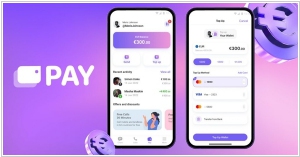
Viber, the messaging app owned by the Japanese e-commerce giant Rakuten, is introducing Payments on Viber, a new service that enables users to establish digital wallets linked to their Viber accounts. These Payments wallets can be connected to other bank accounts, as well as Visa and Mastercard, allowing users to make bill payments, purchase goods, and transfer money to other individuals. The initial launch of this service will focus on peer-to-peer transfers, which will be free of charge. However, there may be associated fees for services like payments to businesses. The service is initially rolling out in Germany and Greece, with plans to expand across Europe and eventually to Viber's broad global presence in 180 countries, spanning this year and the next.
2020. Viber launches group video calls for 20 users
Viber introduces its latest feature, the Group Video Calls, catering to the needs of large meetings and online classes. This new functionality allows for group video calls with a maximum of 20 participants and no time limit. Viber has already gained significant popularity with its Group Audio Calls, accommodating up to 20 individuals, and group chats, supporting up to 250 people. Given the current circumstances, Viber has expanded its capabilities by incorporating video communication. During Group Video Calls, the speaker is visible to all participants; however, users have the option to pin any video to their screen, whether it's their own or another participant's. Moreover, users can mute themselves or disable their video stream, as well as determine if other participants have activated the mute or video-off settings.
2017. Viber acquired shopping keyboard startup Chatter Commerce
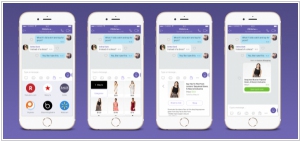
Earlier this year, messaging app Viber ventured into shopping services with its Instant Shopping feature, enabling users to search for items available for purchase directly within the app's interface. In a strategic move to compete with alternative platforms, Viber has recently acquired Chatter Commerce, the startup that played a significant role in developing this feature. This acquisition positions Viber to enhance its shopping capabilities. Speculations suggest that even Amazon is working on a consumer-centric messaging app. Additionally, Facebook has been expanding Messenger beyond basic chat, incorporating transactional features, bots, and other services. This highlights a notable trend among messaging apps, leveraging their existing user engagement to drive business growth through various avenues.
2017. Viber introduced secret chats with self-destructing messages
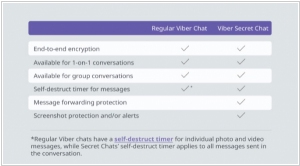
Viber has released an update for its iOS and Android versions, introducing the highly anticipated feature of "Secret Chats" to the service. Following in the footsteps of Snapchat, Facebook, Telegram, and other platforms, Viber now allows its users to set timers on their messages, resulting in self-destruction after a specified duration. Additionally, this new feature notifies the sender if the recipient takes a screenshot, a functionality initially popularized by Snapchat. Viber appears to be emphasizing its commitment to security by showcasing these features, setting itself apart from other messaging platforms. The introduction of end-to-end encryption and hidden chats last year further solidified Viber's dedication to privacy and security.
2017. Viber adds e-commerce feature
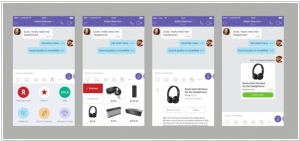
Messaging app Viber, owned by e-commerce company Rakuten, aims to capitalize on e-commerce while avoiding intrusive advertising. Viber plans to introduce a new feature where users can explore items for sale related to their current chat by tapping on a small shopping bag icon at the bottom of the screen and conducting a search. The initial launch of this feature will take place in the U.S. on March 6, with plans to expand to other markets later. Users will not be able to make purchases directly within Viber; instead, they will be redirected to the relevant page in the respective brand's app via a deeplink.
2016. Viber launched Public Accounts for businesses
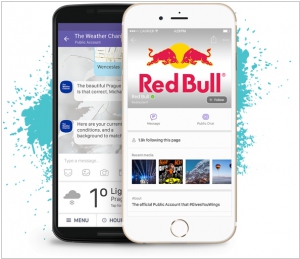
Messaging app Viber is introducing Public Accounts for businesses and brands seeking to engage with Viber users for marketing purposes, customer service, or a combination of both, without the requirement of adding the account as a contact first. Users can now simply subscribe to these accounts. Additionally, by the end of November, Viber's API will be seamlessly integrated with approximately 10 to 15 popular CRM packages, enabling businesses to manage their Viber messages alongside their other social media, email, and messaging interactions. With the introduction of Public Accounts, Viber joins the ranks of other consumer-focused messaging apps such as WeChat, Line, and Facebook Messenger, all of which offer similar features.
2016. Viber adds end-to-end encryption and hidden chats
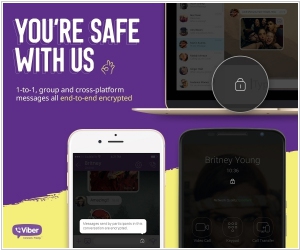
Following in the footsteps of WhatsApp, Viber, another popular messaging app, has introduced end-to-end encryption for all messages and calls on its platform, including group chats (supporting up to 200 people). Additionally, Viber now offers a feature to 'hide' chats on your account, complementing its existing expanded deleting function. These new privacy features are available across Android, iOS, PCs, and Mac desktops, and can be activated by updating to the latest app version (6.0) and reauthenticating the app via QR Code. Viber's encryption provides different levels of security, visually represented by a color-coded lock displayed on the right side of the screen.
2016. Messenger Line introduced bots
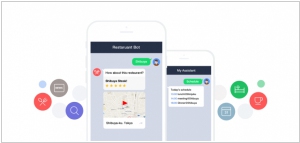
Developers now have the capability to create bots for the messaging app Line. Initially, Line is limiting the availability of these bots to a trial period with just 10,000 slots, operating on a first-come, first-serve basis. Each bot will be restricted to serving 50 friends or accounts, indicating that this is primarily a testing phase before a wider release. As of now, there are limited features for end users, but with developers having access to the technology, we can expect Line bots to be introduced in the near future. Additionally, Facebook is anticipated to announce the opening of its Messenger platform for bots at its upcoming F8 event.
2016. Messenger Line now allows to create group calls with up to 200 friends
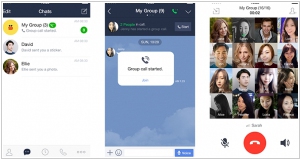
Mobile messaging service Line has been offering one-on-one video and voice calling for a while. Now, it has introduced support for group voice calls with the capability to accommodate up to 200 participants simultaneously. This new feature appears to target business users, as Line aims to replace certain enterprise calling systems. By providing such functionality, Line sets itself apart from competitors like Facebook Messenger and WhatsApp. Despite Messenger's billion-plus active users and its existing video and voice calling capabilities, and WhatsApp's recent addition of voice calling and rumored upcoming video calling feature, neither platform currently supports large-scale group calls. Therefore, Line's latest update brings attention to its calling feature.
2015. Messenger Line adds end-to-end encryption
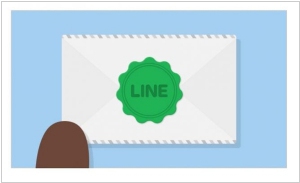
Japan-based messenger Line has made an important announcement for its mobile messaging service, which boasts a massive user base of over 211 million people worldwide per month. The long-awaited implementation of end-to-end encryption, called 'Letter Sealing', is set to enhance the security of messages and features within the service. Initially, this encryption will be available for one-on-one chats and the location-sharing feature across Line's mobile and desktop apps. It's important to note that the encryption feature will only be active when all parties involved have it enabled on their devices. Currently, users need to manually activate encryption by navigating through menus, which may affect the initial rollout. However, Line has plans to make it the default setting for all users in the near future, starting with those who have a single Android device registered to their account. Furthermore, Line intends to expand encrypted sealing to its desktop version and other operating systems gradually as well.


